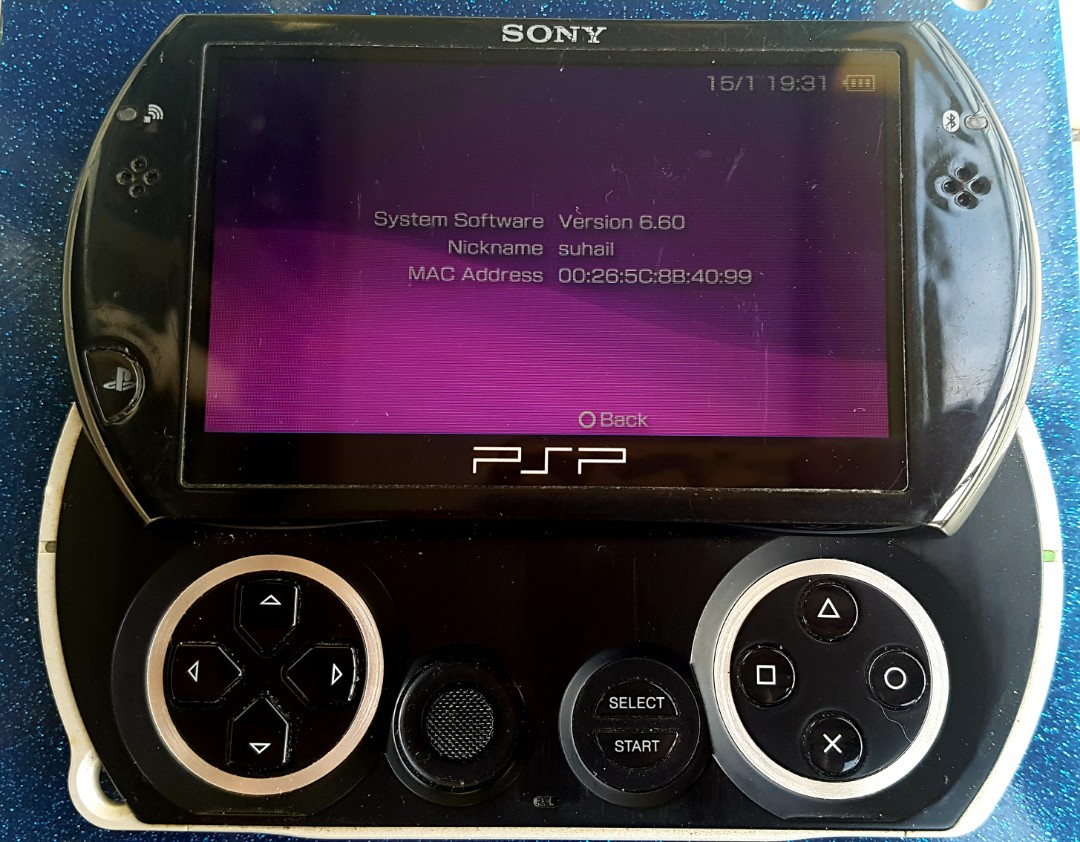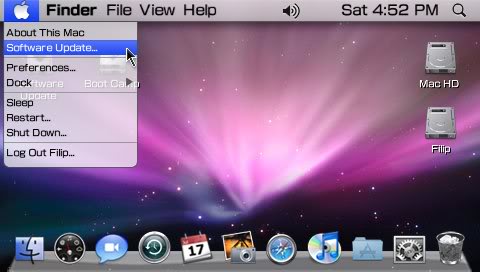Obtaining GNU PSPP
PSPP is GNU software. You can obtain it the same way as with anyGNU software. PSPP should work on most modern computers and most operatingsystems. Systems which have been known to work include:GNU/Hurd,GNU/Linux,Darwin (Mac OS X), OpenBSD,NetBSD, FreeBSD, and Windows.
Binaries
Free PSP Mac OS X wallpapers for your Sony PlayStation Portable.
- Download: Mac OS X Leopard PSP Portal How to Install A PSP Portal: Download the psp portal using the link above. Conect your PSP to your computer Extract the Portal Folder into the root folder of your psp Unlplug your psp from your computer. On your PSP go to your web browser and enter the URL of the psp portal (which should be in the.
- Want to find a video converter which is compatible with Mac OS X? Any Video Converter is what you need. With this PSP video converter, you can easily convert AVI, MP4, FLV movies to Sony PSP on Mac OS X and enjoy movies anywhere as you like.
We do not distribute precompiled binaries of PSPP. Computers come with so many different archtectures, kernels, operating systems that it would not be feasible for us to do so. However most modern operating systems come with PSPP pre-packaged. To install it, you simply type: in the case of Debian derived systems; or in the case of Red Hat derived systems. For systems which have no conventional package manager, the procedure is somewhat harder. You must explicitly download the binary, and follow the instructions which come with it. Some such binaries of which we are aware are listed below:
Mac Os X For Psp Emulator
- Windows: installers or all downloadable files.
- Mac OS X: Install a DMG bundle for recent versions of Mac OS, or use MacPorts to build and install PSPP on a wider range of Mac OS version. With MacPorts, run
port install pspp-develto get the latest and most featureful version of PSPP, orport install psppto get an older but possibly better tested version (more information).
Please note: Because the PSPP developers have not prepared these binaries, we cannot in general vouch for them.
Source
If you want to compile and install PSPP yourself, you can get the source code fromhttp://ftpmirror.gnu.org/pspp.Should this link be unavailable or unreasonably slow, please select a local mirror site.Once you have downloaded the tarball, refer to the INSTALLfile for installation instructions.
Development Versions
PSPP is under continual improvement. You can get development versions if you are interested to see what the developers are working on. Development versions have undergone less testing than released versions.
You can fetch the latest development sources fromthe Savannah GITrepository.The installationprocedure is more complex than for released versions, so werecommend this only for developers.
Automated builds of the developmentversions are performed typically every day.

General information
What is Basilisk II?

Basilisk II is an Open Source 68k Macintosh emulator. That is, it allows you to run 68k MacOS software on your computer, even if you are using a different operating system. However, you still need a copy of MacOS and a Macintosh ROM image to use Basilisk II. Basilisk II is distributed under the terms of the GNU General Public License (GPL).
For more information, see the README file. If you are interested in learning how Basilisk II works internally, there is a Technical Manual available (knowledge about programming and computer architecture is required).

Available ports
Basilisk II has been ported to the following systems:- Unix with X11 (Linux i386/x86_64, Solaris 2.5, FreeBSD 3.x, IRIX 6.5)
- Mac OS X (PowerPC and Intel)
- Windows NT/2000/XP
- BeOS R4 (PowerPC and Intel)
- AmigaOS 3.x
Mac Os X For Psp Rom
Some features of Basilisk II
- Emulates either a Mac Classic (which runs MacOS 0.x thru 7.5) or a Mac II series machine (which runs MacOS 7.x, 8.0 and 8.1), depending on the ROM being used
- Color video display
- CD quality sound output
- Floppy disk driver (only 1.44MB disks supported)
- Driver for HFS partitions and hardfiles
- CD-ROM driver with basic audio functions
- Easy file exchange with the host OS via a 'Host Directory Tree' icon on the Mac desktop
- Ethernet driver
- Serial drivers
- SCSI Manager (old-style) emulation
- Emulates extended ADB keyboard and 3-button mouse
- Uses UAE 68k emulation or (under AmigaOS and NetBSD/m68k) real 68k processor
